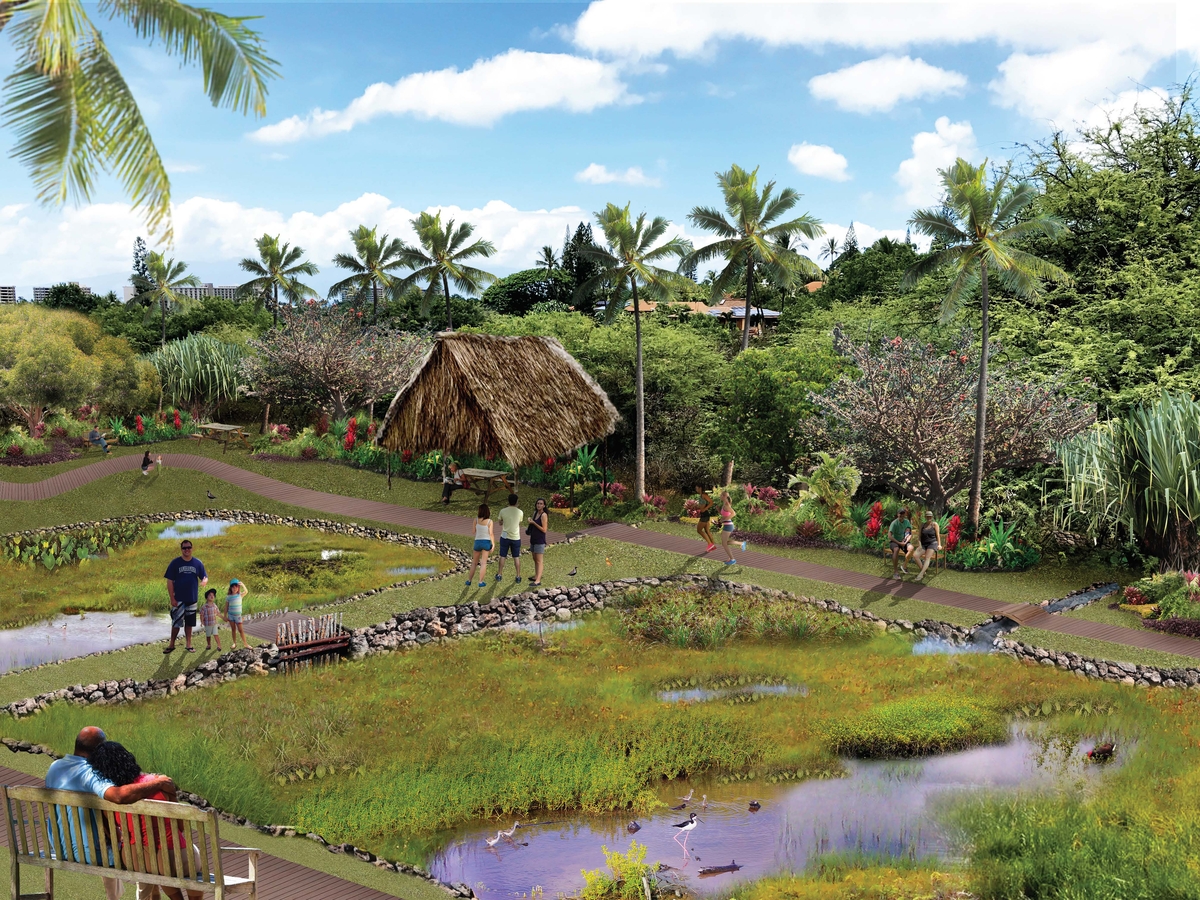Our Community
Honda Marine Science Foundation Awards Grants to Support Coastal and Marine Habitat Restoration Projects

Honda Marine Science Foundation (HMSF) has awarded grants to fund four research projects that address the impact of climate change on the ocean and intertidal areas. The projects focus on building "living shorelines" to restore marine habitats bordering the Pacific Ocean, and include Smithsonian Living Shorelines Project in San Francisco, California; Los Angeles Living Shoreline Project in Los Angeles, California; Zedler Marsh Living Shoreline Project in Long Beach, California; and Living Shoreline Multipurpose Area on West Maui, Hawaii. HMSF awards up to $300,000 in grant funds annually.
Honda Marine Science Foundation supports "living shoreline" projects that implement natural approaches to protecting coastal habitats and communities while promoting harmonious interaction between humans and the ocean. According to the National Oceanic and Atmospheric Administration, a living shoreline is a protected and stabilized shoreline that is comprised of natural materials such as plants, sand, or rock. In contrast to "hard" shoreline stabilization methods like concrete seawalls, which impede the growth of plants and animals, living shorelines grow over time.
"Honda Marine Science Foundation is committed to supporting living shoreline projects that address the impact of climate change," said Raminta Jautokas, Honda Marine Science Foundation board member. "When considering options for coastal protection, historically we've chosen to construct hardscapes such as concrete walls. Living shorelines are an ideal solution for coastal protection because they improve water quality, help to protect against erosion, and provide habitat for marine species."
2019 Honda Marine Science Foundation Grant Recipients
Smithsonian Living Shorelines Project
This initiative by the Smithsonian Environmental Research Center is part of a large living shorelines project by the California Coastal Conservancy at Giant Marsh on the Richmond shoreline in California's San Francisco Bay. Rockweed will be transplanted to ameliorate heat stress in restored intertidal oyster populations. Rockweed transplantation, a process that has not yet been studied in San Francisco Bay, could prove critical to the success of oyster living shorelines projects under future climate change scenarios.
Los Angeles Living Shoreline Project
To protect against sea level rise and coastal storms, this project by The Bay Foundation will enhance roughly three and a half acres of beach and coastal bluff habitat by restoring coastal bluff, sandy beach and near-shore eelgrass habitats. This project is vital to the preservation of natural ecosystems, as native flora has been almost completely eradicated across Los Angeles beaches. This habitat restoration will provide enhanced ecosystem services, including improved water quality, wildlife benefits, carbon sequestration, shoreline stabilization, and storm protection.
Zedler Marsh Living Shoreline Project
Zedler Marsh is one of the last surviving tidal wetlands in Los Angeles County. This 10-acre tidal wetland along the San Gabriel River in Long Beach, California, will be restored by the Los Cerritos Wetlands Land Trust by installing intertidal vegetation in order to protect the wetland marsh from future erosion, increase biodiversity, and improve water quality.
Living Shoreline Multipurpose Area
To improve coral reef health on West Maui, Hawaii, the Coral Reef Alliance will construct a living shoreline "green infrastructure" multipurpose area to reduce pollution from severely degraded watersheds. A natural watershed made of native vegetation effectively filters storm water and absorbs chemicals and nutrients that can be detrimental to coral reefs. By reducing sediment pollution on the coral reef and building community-centric green infrastructure, the project will provide both environmental and community benefits.
"Honda Marine Science Foundation is generously supporting the Coral Reef Alliance's Clean Water for Reefs Initiative in Maui. The grant will help us slow stormwater, increase water infiltration and stop sediment from reaching the ocean and damaging coral reefs," said Jos Hill, MAppSc MBA, associate program director, Coral Reef Alliance.
Promoting Environmental Education in the Community
Honda Marine Science Foundation partners with organizations that share its vision for improving and preserving coastal areas for future generations. As part of Honda's longstanding relationship with the Aquarium of the Pacific, Honda Marine Science Foundation sponsors forums to brainstorm solutions to the most pressing and complex problems facing the ocean and environment.
In 2018, Honda Marine Science Foundation sponsored the National Summit on Coastal and Estuarine Restoration and Management in Long Beach, California, which is hosted by Restore America's Estuaries and the Coastal States Organization. The foundation provided scholarships to students interested in coastal and estuarine science, providing them with the opportunity to attend the summit. Further, HMSF supports Friends of Cabrillo Marine Aquarium, the nonprofit that provides funding and resources to help the city-run Aquarium meet its mission "to be a trusted resource that inspires exploration, respect and conservation of Southern California marine life."
For information about how to apply for a Honda Marine Science Foundation grant, visit marinescience.honda.com or send an email to hmsf@ahm.honda.com.
About the Honda Marine Science Foundation
Established in 2016, The Honda Marine Science Foundation is an initiative to help restore marine ecosystems and facilitate climate change resilience. The foundation supports efforts that improve and preserve coastal areas for future generations. Inspired by the Japanese philosophy of sato-umi – the convergence of land and sea where human and marine life can harmoniously coexist – HMSF is dedicated to addressing the impact of climate change on our oceans and intertidal areas. The foundation's board includes marine science researchers and leaders from public and non-governmental organizations who are committed to ocean conservation and restoration.
To learn more about the Honda Marine Science Foundation, visit marinescience.honda.com.
Error: You currently have access to a subset of Twitter API v2 endpoints and limited v1.1 endpoints (e.g. media post, oauth) only. If you need access to this endpoint, you may need a different access level. You can learn more here: https://developer.twitter.com/en/portal/product